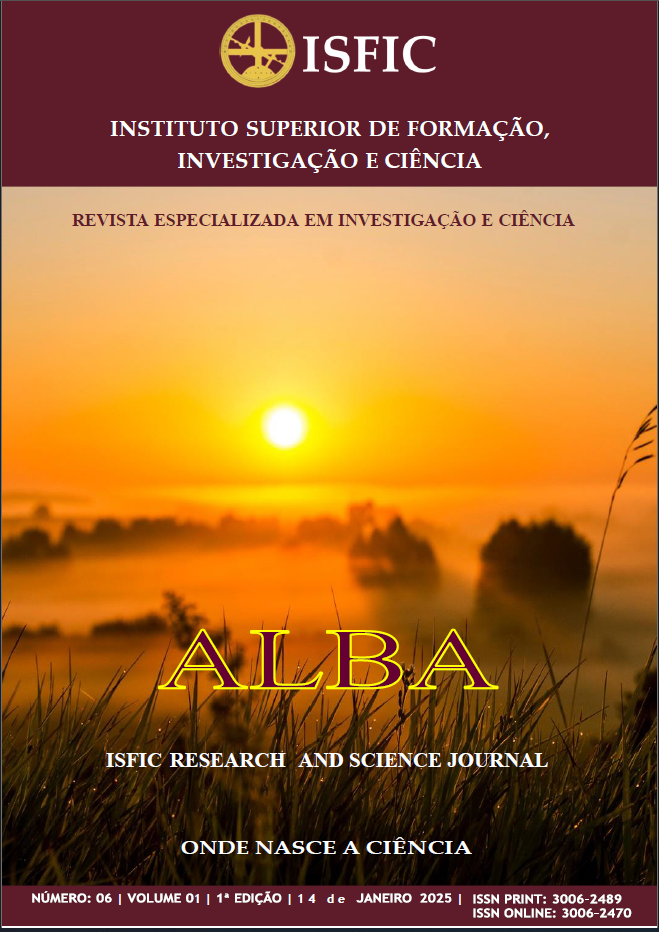Implementation of IPSAS in Mozambique - challenges and perspectives for the Ministry of Economy and Finance (2020 – 2024)
Abstract
The great importance of the adoption of IPSAS comes from the fact that standardization now allows for equitable and more appropriate evaluations, which improves mutual trust based on accounting information produced by countries. However, the implementation of IPSAS in any accounting faces challenges inherent to the standards in any accounting unit. These challenges are also faced by Mozambique over time as a country committed to the effective implementation of International Public Sector Accounting Standards (IPSAS) to be aligned with the world. It should be noted that Mozambique is one of the few countries in the world that has all its public accounting computerized and managed by an electronic system e-SISTAFE. The central research question seeks to understand what are the main challenges faced by Mozambique in adopting the International Public Sector Accounting Standards (IPSAS). The objectives of the study are multiple, the evaluation of the current state of IPSAS implementation in national public accounting; the identification of the main motivations for the adoption of the standards and the results achieved so far and the advantages that the country intends to acquire with such implementation. The study concluded that the implementation of IPSAS in Mozambique is ongoing and is recognized by managers as being crucial for increasing transparency in accountability. However, there are still challenges of various kinds observed throughout the process to be highlighted: the scarcity of financial and human resources, the lack of technical knowledge and the need for political support. Despite these obstacles, the expected benefits, such as improving the quality of financial information and promoting trust in public institutions, justify continued efforts towards the full adoption of IPSAS in Mozambique.
Downloads
References
Abimbola, A. (2020). International Public Sector Accounting Standards (IPSAS) Adoption and Implementation in Nigerian Public Sector. Kwara State, Nigeria.: Landmark University.
Abreu, A. F. (1999). O Reajustamento estrutural e o seu impacto em Moçambique (1982-1997): Uma abordagem histórica.
ACCA. (2017). IPSAS implementation: current status and challenges. Retrieved from www.accaglobal.com African Association of Accountantants-General. (2024). The status of IPSAS implementation in Africa. IFAC-CIPFA.
Artiel, M. (2023). Avaliação do impacto da implementação da contabilidade patrimonial baseada nas IPSAS na contabilidade pública de moçambique: contas gerais do estado de 2007 a 2016. Maputo, Maputo, Moçambique.
Carvalho, J. B. (2006). Contabilidade Pública: Estrutura Conceptual.
CEDSIF - Centro de Desenvolvimento de Sistemas de Informação e Finanças. (2021). Visão das Finanças Públicas 2011-2025. Maputo: CEDSIF.
Centro de Integridade Pública- CIP. (2021). Custos e Consequências das Dívidas Ocultas para Moçambique. Maputo.
Comissão Interministerial da Reforma do Sector Público - CIRESP. (2001). Estratégia global da reforma do sector público: 2001 - 2011. Maputo.
Confederação das Associações Económicas de Moçambique. (2024, Janeiro 8). CTA História. Retrieved from www.cta.org.mz/cta-2/história
Fortes, J. (2006). Contabilidade Pública, Teoria e Prática. 9. ed. Brasilia: Franco & Fortes.
IFAC - CIPFA. (2021). International public sector financial accountability index: 2021 status report. IFAC.
IFAC. (2010). Normas Internacioais de Contabilidade Para o Setor Público.
Instituto Nacional de Estatística. (2021). O Setor Público em Moçambique: Conceito e âmbito. Maputo: Instituto Nacional de Estatística.
IPSASB. (2022). Handbook of International Public Sector Accounting Pronouncements. IFAC.
Macuácua, Â. A. (2021). Reforma da Contabilidade do Setor Público em Moçambique. Congresso Internacional de Administração ADM 2021.
Mandlate, L. R. (2018). O contributo do SISTAFE na redução de casos de desvio de fundos públicos (2012-2016). Maputo.
Manjate, E. M. (2021). Implementação das IPSAS em Moçambique: uma abordagem sequencial. Moçambique.
Matavele, M. (2023). Consolidação da Contabilidade Pública para uma gestão transparente e eficiente. Maputo: ISCAM.
Mota, F. (2012). Contabilidade aplicada ao Setor Público, 1.ed. Brasilia: Editora Gestão Pública.
Mourão, A. R. (2018). A harmonização contabilística internacional e os encargos administrativos. Viana do Castelo: APNOR.
Narsaiah, N. (2019). Adoption of International Public Sector Accounting Standards in India. Indian Journal of Accounting (IJA), 01-12.
Niyama, J. K. (2010). Contabilidade Internacional. São Paulo: Atlas.







